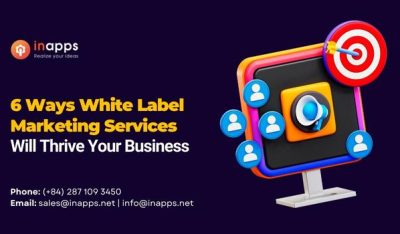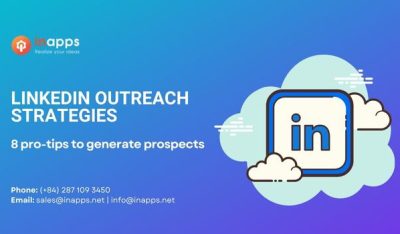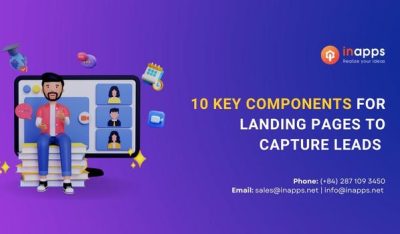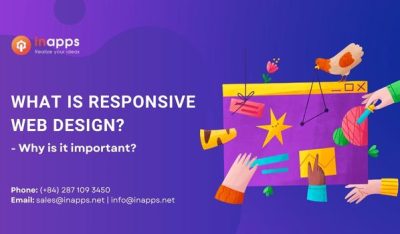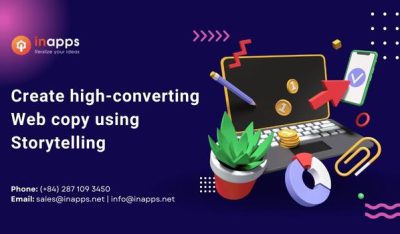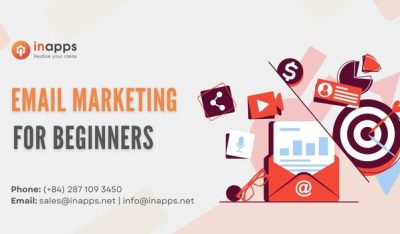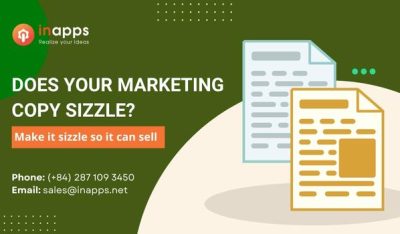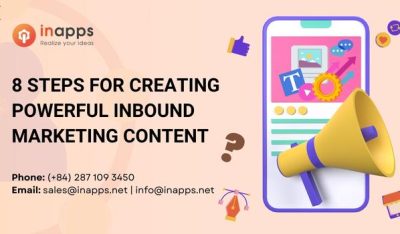- Home
- >
- Inbound Marketing
- >
- 5 important questions to improve your B2B Content Marketing
5 Important Questions to Improve your B2B Content Marketing is an article sent to you by the InApps editorial team. Hope readers will have more useful knowledge at www.inapps.net
Do you want to reach new audiences and grow your business?
Are you unsure where to begin?
It can feel overwhelming trying to navigate B2B content marketing. Often people confuse best practices for selling to businesses with what works best for consumers.
While it can be tricky strategizing content for B2B marketing, it is worth the time and effort.
According to CMI’s 2021 B2B Content Marketing Report, 87% of B2B marketers said that their content marketing created brand awareness and 81% said it built credibility and trust with their audience.

In order to get these types of results, you need to have a B2B content marketing strategy.
Today I will help you understand
- What B2B marketing is
- The differences between B2B and B2C marketing
- Steps needed to create a successful marketing strategy
- How to check your progress with KPIs
Let’s get started!
What is B2B Content Marketing?
Content marketing appeals to both website visitors and search engines through the publication and distribution of high-value web content.

B2B Content Marketing expands your audience, attracts new customers, builds your awareness, engages your audience, nurtures your relationships, and drives leads and sales with other businesses.
Content marketing is a great way to get your business in the view of your audience without coming off pushy. While the viewer thinks they are doing their own searching and research, you are able to engage with and sell to them.
Content marketing also helps businesses feel confident getting into business with you. This is because they are able to do research on what is out there and have a more informed conversation with your salesperson.
How does B2B content marketing differ from B2C content marketing?
Marketing is all about providing value to your audience. Therefore it is important to understand who you are trying to sell to.

While a B2C buyer is driven by emotion, a B2B buyer is often motivated by the value of your offer. Therefore your B2B content should consist of concrete data and numbers.
B2C content is often created to inspire their customer. On the other hand, your goal when creating B2B content is to inform and educate your audience.
This doesn’t mean your B2B content has to be boring. In fact, creative content can greatly stand out in this industry.
Where do you start with a B2B content marketing strategy?
Now that you know what B2B marketing is and how it differs from B2C, it is time to start brainstorming your content plan. Content that is backed by strategy often performs better than something that just sounds good.
Before you begin creating any content, it is important to ask yourself a couple of questions:
1. What is your unique selling proposition or competitive differentiator?
In order to capture your target’s attention, you need to find a way to stand out from your competitors. The best way to prove your value to prospective businesses is by becoming an expert in your area/industry.
Businesses want a product or service that fills their needs. These needs usually consist of either saving money, saving time, or making more money.
Your content should show your potential customer what they can get from you that they can’t get from your competitors. Businesses do this by creating content that educates the customer on their offerings and how they will benefit them.
2. What are your buyer personas?
To make sure you are giving your audience useful, quality content you first need to have a deeper understanding of your audience.
This is where the buyer persona comes in.

A buyer persona is a fictional character you create to represent your ideal customer. Think about, who is your b2b buyer and who is the decision-maker?
There are usually fewer buyer personas in B2B marketing because often your target buyers all value the same thing.
One tool you can use to create your buyer persona is Google Analytics. There you can see who is already coming to your site. Google Analytics provides data on their age, gender, location, and interests.

In your persona, you should understand who your audience is and what problems they face. Then you can create content that best speaks to them.
3. What stage of the marketing funnel are they at?
The marketing funnel is a visual representation of the steps your potential customer may take before converting. We say converting and not making a purchase because your goal may not be to have them buy something but instead fill out a form or become a member.
These stages consist of:
- Awareness – This is the stage where you attract new audiences who are unaware of the brand or maybe even their problems. Build trust with informational content that generates leads. This type of content can be blogs, webinars, infographics, or social media.
- Consideration – This is where the customer is aware of the problem but doesn’t know who they want to solve it. You need to stand out among your competition and make sure your audience remembers you. This content can begin to be more promotional giving more information on products or offers.
- Conversion – Finally, this is where the transaction happens and is your last chance to leave a good impression on your customer. Your goal is to make them lifetime customers who will advocate for you.
- Sales– This is the final step of the decision-making process. Your marketing team and sales team will work together to convince the buyer that you are the perfect choice to help their business.
- Loyalty – Your relationship with the consumer doesn’t end at purchase. In order to create a loyal customer who will keep coming back, you need to continue to nurture them through targeted content. You can do this by sending out personalized emails that thank them for their purchase or giving them a discount for their next visit.
- Advocacy – One of the most effective marketing tools is word-of-mouth so it is important to create content that encourages customers to share their experience. After the purchase is complete ask them if they are willing to leave a review or submit a photo or prompt them to share on social media. You can then use this user-generated content(UGC) for future marketing.
Businesses that craft content based on what stage of the marketing funnel their buyer is at, perform the best. This is because audiences look for content that applies to them and ignores the rest.
A business at the awareness stage will want to see content that educates them on their problems or possible solutions. On the other hand, a business that is in the desire or action stage wants a promotional message on your offerings.
4. What kind of content will attract your audience?
Lastly, you want to decide which types of content you want to use. Create content that provides value to your audience. For businesses that means educating them and answering any questions, they may have.
Unlike B2C buyers, they often do not do decision-making on a whim. Invest time into these relationships with emails, phone calls, social media, and relevant blogs.

Blogs are a great start when creating content for B2B marketing. Blogs begin selling before the audience is ready to make a purchase, building a relationship early on in the awareness stages.
Build awareness by showcasing your knowledge and expertise. This can be done with infographics or statistics.
Whatever content you decide to create should be able to apply to their work. B2B buyers do not have time to read something that won’t help answer their needs.
How can you know if your content marketing program is working?
Before creating any content you want to decide your goals and what your key performance indicators are. Without goals, there is no way to know if what you are doing is right.

Every goal has a different way to measure its success. Some KPIs to look at are shares and comments, traffic, or leads.
If you notice it is taking a while to reach your goals don’t freak out! Different goals take more time so make sure your expectations are reasonable.
You should be constantly checking your progress as well. This way you can keep an eye out for anything that may not be working so you can readjust and don’t waste your time or money.
One of the largest KPIs for B2B content marketing is customer retention and loyalty. B2C selling is often a one-time purchase and then the relationship is over. B2B selling however is usually a long-term relationship with multiple transactions and can involve a lot of money.
Businesses want to know they can trust you and rely on you for the long term. If your content is continuously educating the buyer and providing value to them your relationships with reflect that.
How can you improve your B2B content marketing?
Now that you have a better understanding of B2B content marketing you can begin to generate content that supports sales by targeting your audience at each stage of the funnel with unique, stage-specific content types that qualify, nurture, and convert leads into paying customers.
Don’t have enough time to create your B2B content marketing?
Outsource to a digital marketing agency. According to CMI 50% of organizations outsource content marketing activities.

It is important to choose marketing service partners that not only create custom high-quality content but content that follows search engine optimization standards.
Follow this to make sure you’ve got 5 Important Questions to Improve your B2B Content Marketing. Save and share with those around you these extras.
To learn more about Inbound Marketing
Contact us:
www.inapps.net
Let’s create the next big thing together!
Coming together is a beginning. Keeping together is progress. Working together is success.







